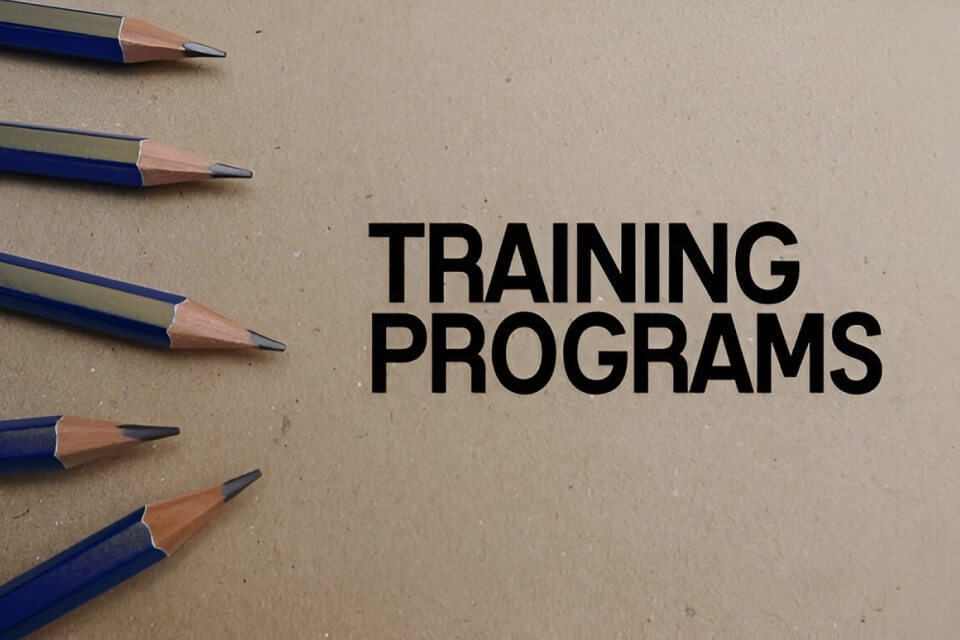Introduction
Africa is full of young people. Over 60% of the population is under the age of 25. This means the continent has a lot of potential. However, many young people are facing a big problem—unemployment. More than 30% of African youth do not have jobs, which is much higher than the world average of 5.8%. Because of this, many struggle to build a good future. That’s where entrepreneurship comes into play in youth empowerment in Africa. It gives young people a chance to create their jobs and even hire others.
In this article, we’ll look at the role of entrepreneurship in youth empowerment in Africa. We’ll also talk about the role of education, government support, and how this all connects to economic growth.
Overview of Youth Demographics and Unemployment in Africa
Africa’s youth population is growing fast. By 2050, it could reach over 830 million. Every year, around 10 to 12 million young people enter the job market. But sadly, only about 3 million jobs are created. As a result, millions are left without jobs or are doing jobs that don’t pay well.
For instance, in West Africa, nearly 25% of young people are unemployed. In Uganda, more than half of the youth are not in school or working. This leads to more poverty, frustration, and even people leaving their countries. Clearly, we need solutions, and one big one is entrepreneurship.
The Growing Interest in Entrepreneurship among African Youth
Because there are not enough jobs, many young Africans are starting their own businesses. This way, they can earn money and create opportunities for others too. Thankfully, many African governments now support this idea. They offer training, funding, and policies to help young people build strong businesses.
Also, schools and programmes are teaching useful skills like business planning, tech, and leadership. As a result, young entrepreneurs are becoming more confident and prepared to succeed
Purpose and Structure of the Discussion
This article will explain how entrepreneurship helps African youth.
First, we’ll look at how entrepreneurship encourages youth empowerment. This helps to promote job creation and innovation skills in youths.
Next, we’ll see the different sectors that youth-led enterprises can be established like agribusiness, the tech industry, entertainment and green and renewable energy.
Then, we’ll talk about supporting youth entrepreneurs through provision of resources, access to business incubators and mentorship programs.
Finally, we’ll learn about the challenges youth entrepreneurship and overcoming the challenges they face.
These points will help show why entrepreneurship is not just helpful, it’s necessary.

How Entrepreneurship Fuels Youth Empowerment
Entrepreneurship plays a big role in helping young people across Africa grow and succeed. It gives them the chance to build businesses, learn important skills, and become active in the economy. Let’s look at how entrepreneurship helps empower youth and why it is so important for Africa’s future.
Promoting Job Creation and Self-Reliance
Right now, one of the biggest problems young people in Africa face is unemployment. It’s not easy to find good jobs, and this often leads to stress, poverty, and hopelessness. But entrepreneurship gives youth a way out. Instead of waiting for jobs, they can start their own businesses. Even better, they can create jobs for others too.
As a result, many young people are becoming self-reliant. That means they are able to earn money, support their families, and plan for the future without depending on anyone. In many countries, governments are helping by giving young entrepreneurs training, mentorship, and funding.
These efforts turn small ideas into real businesses that help grow the economy.
Building Leadership and Innovation Skills
Besides making money, running a business teaches young people useful skills. They learn how to lead, solve problems, and think creatively. They also learn how to manage money, make smart decisions, and keep going even when things get tough.
Education is very important in this process. Schools and training programmes give young people the tools they need to succeed. Many youth empowerment programmes focus on helping them build confidence and leadership skills.
In the end, these skills help young Africans compete around the world and lead change in their communities.
Enhancing Social and Economic Inclusion
Entrepreneurship also helps more young people take part in the economy, even those from poor or rural areas. It opens doors for everyone, including girls and young people who have not had many chances before.
When more people get involved, we see less poverty and more fairness. More women and marginalised youth can now start businesses, earn income, and live better lives. This leads to stronger communities and a healthier society.
That’s why measuring the success of youth empowerment programmes is important. It helps leaders know what’s working and what needs to improve.
Key Sectors for Youth-Led Enterprises in Africa
Starting a business is one of the best ways for young people in Africa to build a better future. With many youths looking for work, creating their own businesses helps them earn money, support others, and grow their communities. Let’s look at the top areas where youth-led businesses are making a real difference.
Agriculture and Agribusiness
First, let’s talk about agricultural sector. This is one of the biggest industries in Africa. Many young people are now using new ideas and tools to improve how farming works. They are starting businesses that use modern farming methods, process food, and help farmers sell their goods online. These changes are helping people in rural areas earn more money and feed more families.
Also, many African governments are offering loans, training, and programs to support these young “agripreneurs.” Clearly, agriculture is a strong path for youth to grow successful businesses
Technology and Digital Services
Next is the tech space. Technology is quickly changing lives across Africa, and young people are leading the way. From building mobile apps to running online stores and creating fintech platforms, youth-led startups are solving real-life problems.
For example, some apps help people send money, get medical help, or learn online. Thanks to the internet, young business owners can now reach customers around the world.
With the right skills, support, and mentors, more youth can join this growing digital economy.
Creative Industries and Entertainment
Another exciting area is the creative world—music, fashion, film, and art. African creativity is in high demand. Many young people are starting businesses in entertainment and using platforms like YouTube, TikTok, and Instagram to share their work. These youth-led companies are telling African stories, showing off culture, and creating jobs. Because of this, investors and governments are starting to notice and support the creative sector. So, with training and the right tools, young creatives can turn their talents into strong businesses.
Green Economy and Renewable Energy
Now, let’s look at the green economy. More young Africans are building businesses that help protect the planet. This includes solar energy, waste recycling, and eco-friendly farming. These businesses not only make money but also help fight pollution and climate change.
Plus, many groups and organisations are now giving grants, tools, and support to green startups. This means more jobs and a cleaner environment. It’s clear that youth-led green businesses are helping build a safer and more sustainable Africa.

Supporting Youth Entrepreneurs: Resources and Networks
Access to Funding and Microfinance
First of all, young people need money to start or grow their businesses. But getting loans from banks is often hard. This is because many youths don’t have things like land or credit records to show. Thankfully, there are special programmes that help. Microfinance organisations and youth-focused funding programmes give small loans or grants with easy conditions.
For example, the Tony Elumelu Foundation has given money to thousands of young African entrepreneurs. Also, government programmes and the African Union’s Youth Start-Up Programme are helping youth access funding to start strong businesses.
Training Programs and Business Incubation
Next, young people also need to learn how to run their businesses. Money alone is not enough. Training programmes teach them how to manage money, understand the market, and build better products. In addition, many business incubators give them office space, advice from experts, and help with planning.
For example, the African Development Bank has teamed up with other organisations to offer both training and market access. This kind of support helps young people grow real, working businesses. Clearly, education plays a big role by giving them the skills they need.
Mentorship and Peer-to-Peer Support Networks
Another important part of the journey is having good mentors and support from other young entrepreneurs. Mentors can give advice, share their experience, and help open new doors. At the same time, peer-to-peer networks give young people the chance to work with others, share ideas, and solve problems together.
Groups like She Leads Africa and the African Women Entrepreneurship Programme are creating safe spaces for young business owners to connect and grow.
Overcoming Challenges in Youth Entrepreneurship
Navigating Regulatory and Bureaucratic Hurdles
One big problem is dealing with too many rules and government paperwork. Starting a business often means filling out many forms and waiting for approval. This can take a lot of time and energy. Sometimes, the steps are confusing, and young people don’t know what to do next.
Thankfully, some African governments are working to fix this. They are creating easier steps and using digital tools to help young entrepreneurs register their businesses faster. These efforts are part of a larger push to support youth empowerment. With less stress from red tape, young people can spend more time building their business ideas.
Tackling Limited Access to Markets and Capital
Another major challenge is access to markets and money. Many youth-owned businesses struggle to find buyers outside their local areas. Even worse, banks and investors are often unsure about lending to young people. They worry that youth-led businesses might fail.
However, new tools are helping solve this problem. Online shops and digital platforms make it easier to reach more customers. Crowdfunding and grant programs also give young people a way to raise money.
Also, learning is key. When young entrepreneurs know how to manage money, promote their products, and speak to investors, they are more likely to succeed. This shows why education is very important in youth empowerment.
Changing Societal Attitudes toward Youth-led Businesses
In some places, young people who want to start a business face doubt. Families and neighbours might think they should get “real” jobs instead. This old way of thinking makes it harder for youth to follow their dreams.
But things are starting to change. More young people are building strong, successful businesses. Their stories are inspiring others. These role models are showing that youth entrepreneurship is smart and powerful.
At the same time, schools, media, and government campaigns are teaching people that business is a good path for young people. With more support, more youth will feel confident to start their own businesses.

Frequently Asked Questions (FAQs)
1. What is the role of entrepreneurship in youth empowerment?
Entrepreneurship helps young people build their own businesses. This means they can create jobs, earn money, and solve problems in their communities.
2. How do African governments support youth empowerment through entrepreneurship?
Many governments have started programmes to help young people. These include training, funding, and policies that make it easier for young entrepreneurs to start and grow their businesses.
3. Why is education important for youth empowerment?
Education gives young people the knowledge and skills they need. With the right learning, they can plan, manage, and grow successful businesses.
4. How does youth empowerment impact African economies?
When young people are empowered, they create new jobs and bring fresh ideas. This helps the economy grow, reduces poverty, and improves people’s lives.
5. What challenges do young entrepreneurs face in Africa?
Young people often face problems like not having enough money to start, limited access to guidance or mentors, poor roads or internet, and tough rules that make doing business harder.
Conclusion
In conclusion, the role of entrepreneurship in youth empowerment is vital for Africa’s future. By supporting young people through education, government programmes, and access to finance, we can unlock their potential to drive economic growth and development. Empowered youth create jobs, innovate, and contribute positively to African economies. Measuring the success of youth empowerment programmes helps improve support systems and ensures lasting impact. With the right tools and opportunities, Africa’s youth can lead the continent to a brighter future.



